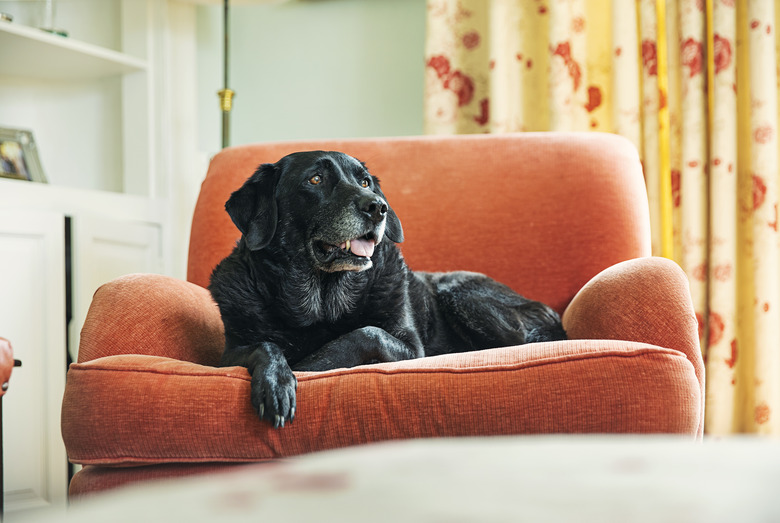Is Eucalyptus Safe For Dogs?
Many dogs are notorious for eating anything and everything. You should never feed eucalyptus to dogs, however, as the leaves and bark are extremely poisonous. In addition to keeping your dog away from eucalyptus plants, make sure any essential oils or personal products containing eucalyptus oil are also kept out of reach.
Eucalyptus, dogs, and poisoning
Eucalyptus, dogs, and poisoning
Eucalyptus species are listed as toxic by the ASPCA. Both the leaves and the bark can cause poisoning in dogs. If your dog ingests the plant, symptoms may include vomiting, diarrhea, excessive salivation, weakness, and depression.
The toxic principles in eucalyptus are eucalyptus oil, eucalyptol, and cyanogenic glycoside. The plant causes similar symptoms in people and cats if it is ingested, so take precautions around all of your children and pets if you have a eucalyptus plant. The oils may also cause contact dermatitis on the skin.
Identifying eucalyptus trees
Identifying eucalyptus trees
Eucalyptus is native to Australia and grows as a shrub or tree with blue-green leaves and light grey bark. There are several species of eucalyptus tree, but one of the smaller species that you may come across is Eucalyptus cinerea, also known as a silver dollar tree. It grows 15 to 52 feet tall and has fragrant foliage and white or yellow bell-shaped flowers. Eucalyptus trees typically grow in warmer climates, but in colder locations, they can be grown in containers and brought inside for the winter.
Protect your pets
Protect your pets
Ideally, remove any plants from your home and landscape that are toxic to pets. However, if you decide to keep eucalyptus as a houseplant, make sure to keep it in a room where your dog can't reach it. Outdoors, keep it fenced off.
If you suspect your dog has eaten eucalyptus, contact your veterinarian immediately. Don't wait for eucalyptus dogs' poisoning symptoms to appear. You can also call Pet Poison Helpline or the ASPCA Animal Poison Control number. Avoid giving your dog any food or home remedies and don't induce vomiting without the advice of a veterinarian. Be sure to collect some of the plant that your dog ate so that your veterinarian can confirm the diagnosis and offer the correct treatment.
Essential oils in the home
Essential oils in the home
You should also avoid using eucalyptus essential oils on or around your pet, including in a diffuser. Many people enjoy the scents and benefits of essential oils. However, your dog may investigate the aroma and wind up eating or breathing in the oil. The oil is may also cause negative effects if your dog gets it on his skin.
Some eucalyptus dogs' essential oil symptoms to watch out for include vomiting, drooling, watery eyes, runny nose, red lips and gums, difficulty breathing, lethargy, and a low body temperature. Some other essential oils to avoid include tea tree oil, cinnamon oil, pine oil, and citrus oil.
Call your vet right away if your dog gets into the essential oils. Take him out where he can breathe fresh air and, if he got oil on his coat, be sure to wash it off as soon as possible with water and some hand or dish soap.
If you do want to continue using an essential oil diffuser in your home, make sure it is in a secure room or somewhere that your dog can't reach it, such as on a high shelf. A passive diffuser is safer for your pets than an active one, but whichever style you use, be sure to check with your veterinarian and select oils that are not harmful to your dog.
Always check with your veterinarian before changing your pet's diet, medication, or physical activity routines. This information is not a substitute for a vet's opinion.
References
- ASPCA: Toxic and Non-Toxic Plants, Eucalyptus
- North Carolina State University Cooperative Extension: Eucalyptus
- ASPCA: Animal Poison Control
- Pet Poison Helpline: Emergency Instructions
- Cabbagetown Pet Clinic: How Essential Oils Can Affect Your Pet's Health
- North Carolina State University Cooperative Extension: Eucalyptus cinerea


